Credlin: Why loudest Yes Voices have always had a big say
Yes, many Aboriginal people are doing it tough, but the idea people like Noel Pearson, Marcia Langton and Megan Davis haven’t been listened to is simply ridiculous, writes Peta Credlin.
Opinion
Don't miss out on the headlines from Opinion. Followed categories will be added to My News.
The people pushing the Voice are anything but outsiders, even though the whole point of the Voice is to end the supposed marginalisation of Aboriginal people.
Yes, many Aboriginal people are doing it tough, especially in remote areas, but the idea that people like Noel Pearson, Marcia Langton, Megan Davis and Pat Anderson haven’t been listened to is simply ridiculous. If these powerful leaders, who’ve been influential on governments for decades, had spent less time fostering views that lead to a sense of grievance and separatism, and more time encouraging Aboriginal people to make the most of their opportunities as Australians, all of us – black, white and everyone in between – would be so much better off.
To the extent that there’s a gap we need to close, these Indigenous activists are arguably just as responsible as government for the fact it’s still there despite the billions spent by taxpayers.
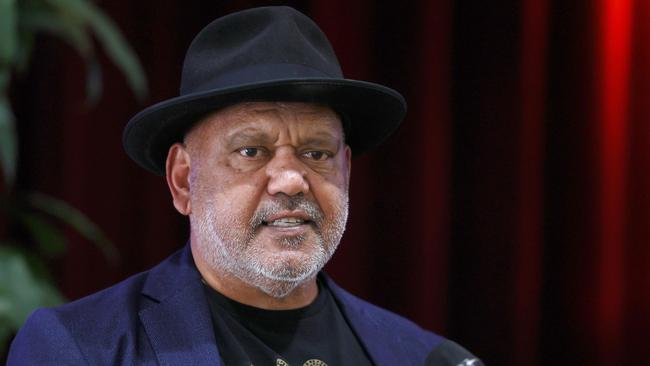
Take Pearson, whose National Press Club speech this week was the big final pitch to vote “Yes”. It was the Coalition, at Pearson’s insistence, that provided tens of millions for his laudable “good to great schools” brainchild, designed to help average teachers give indifferent learners a high-quality education through highly disciplined classrooms and carefully structured teaching. Its palpable success in the remote schools where it was implemented has been a part of the reluctant acceptance by the education establishment of at least a partial return to phonics.
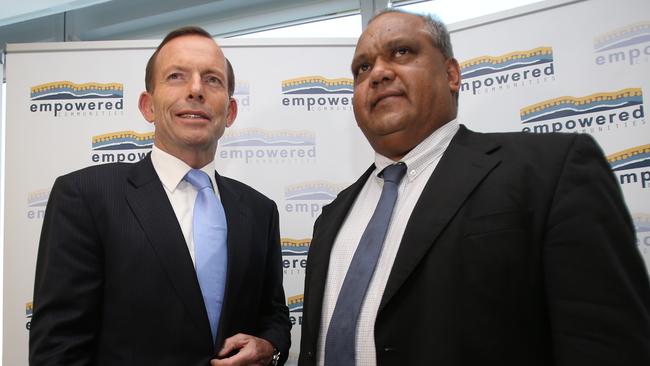
It was largely through Pearson that Tony Abbott spent a week a year as prime minister in remote Australia. Earlier, Pearson helped to make the case for constitutional recognition to John Howard. Before that, he’d been a key part of the team negotiating land rights legislation with the Keating government. According to the local MP, over the years, Pearson’s Cape York Partnerships organisation has received over $500 million from various governments to improve the lives of local Indigenous people.
Marginal and dispossessed he’s not, nor has he suffered from any lack of governmental support, as shown by his ranking in the top ten of last week’s Australian Financial Review Power List.
In recent years, though, Pearson is no longer the activist who once declared that welfare is “the poison that’s killing our people”, instead, his focus has been on persuading government to adopt the Voice, even though the Voice, inevitably, seems to focus on promoting grievance, victimhood, group rights, and dependence on government. As its backers insist, it’s: “Voice, Treaty, Truth”, which is the Uluru Statement that the Prime Minister says he’s committed to implementing “in full”.
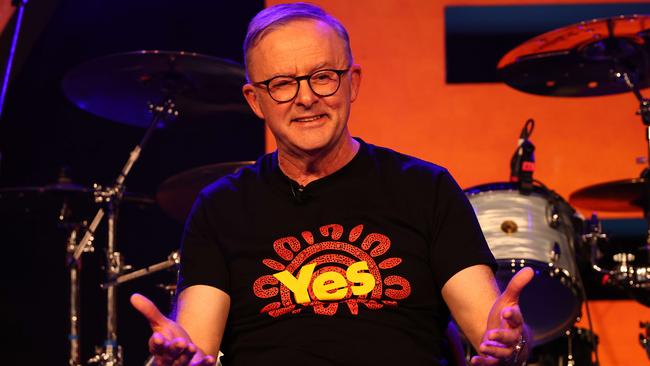
At the National Press Club last week, Pearson urged us to vote “yes” from “the love of country that joins all of us as Australians”. But he couldn’t help suggesting that Aboriginal people are still treated with “contempt and disdain” and saying “we were victims of history but our victimhood ends with our empowerment”, as if power hasn’t been something Pearson has exercised all his life.
As a campaigner, I have noticed the recent shift in language from the Yes camp to refer to the Voice as an “advisory body”. In interviews, the PM says the phrase over and over again. And yet when my referendum postal ballot paper arrived four days ago, the word “advisory” was nowhere on it. But that’s how disingenuous the pro-Voice campaign has been from the start.
It’s precisely because the actual argument for the Voice is so thin-to-non-existent that the Yes campaign so often resorts to moral pressure, aggressive protests, and the suggestion that voting No is somehow contemptible.
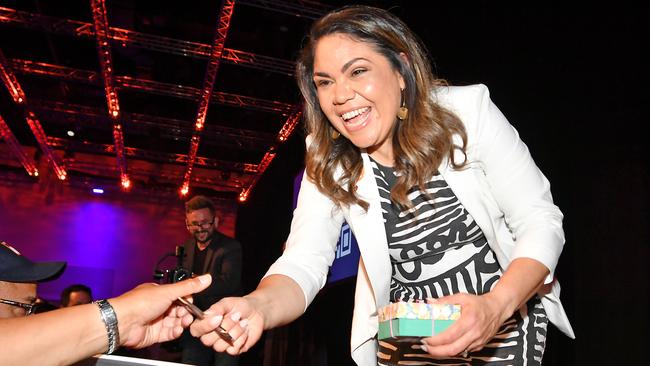
Thank God for the very different leadership provided by Jacinta Nampijinpa Price and Warren Mundine, who are proud of their Indigenous heritage but no less proud of being Australian. In a very different Press Club address this week, Mundine said that the imminent referendum is a “choice about what kind of nation we want to be … a liberal democracy where all people are equal … or a country where people are divided by race, and permanently in conflict with each other over facts of history that cannot be altered”.
It’s telling that the football codes that rushed to embrace the Voice months ago won’t be pushing it this grand finals weekend. Perhaps they’ve finally realised Australians are sick of being hectored and are on the verge of saying a resounding No not just to the PM’s Voice but also to the identity politics that’s been forced down our throats.
LIBERALS MUST GROW A SPINE TO TAKE BACK VICTORIA
The boisterous cheering that greeted news of Daniel Andrews’ resignation at an AFL lunch last week shows how much Victorians are hankering for a very different style of leadership. It might be less domineering under new Premier Jacinta Allan but it will hardly be less left wing. And, unless the Liberals can dramatically lift their game, it will continue to be Labor.
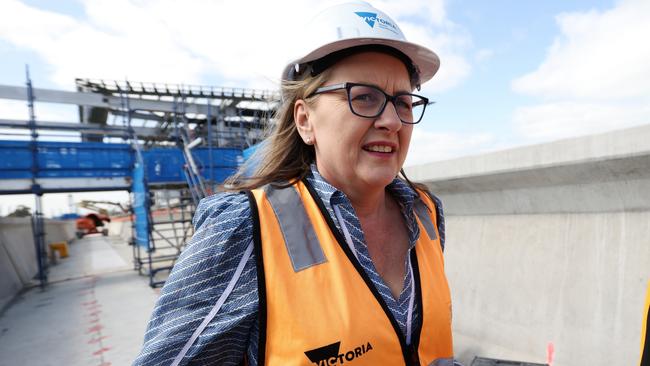
Sure, the Labor right flexed its muscle and inflicted a right-wing deputy on the new left-wing Premier through the threat of a membership ballot. But it’s noteworthy that the new Premier’s first commitment was not to tackling the state’s record debt, better hospitals, safer roads, or to lower taxes, but to implementing a treaty through the Victorian First People’s Assembly. In this, she was following Labor’s contemporary inclination to make Indigenous treaties their first priority. Such as Prime Minister Anthony Albanese’s opening commitment after winning the election to implement the Uluru Statement “in full”.
Victorian Labor’s re-set should trigger a rethink for the Liberals too, who have too often been a weak echo rather than a strong alternative. Part of this should be a readiness to fight at least some culture war battles.
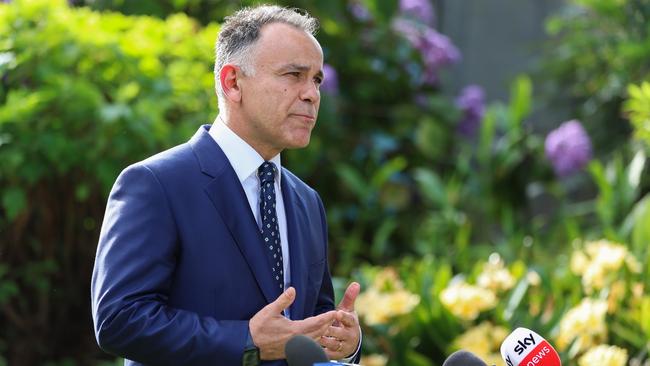
Before the 2018 election, for instance, the Victorian Liberals opposed a state Indigenous treaty, that Labor had never sought a mandate for, saying that it was a federal responsibility. But when it came to a vote, they rolled over.
To be competitive, the Victorian Libs need to find a spine, or a new leader. When Andrews resigned, one of their steadiest long-serving MPs gave his leader some good advice. Be the bigger person, Bill Tilley told John Pesutto, apologise for accusing Moira Deeming of being linked to extremists and readmit her to the party room.
It doesn’t matter how many mistakes the novice Premier makes, she’ll be invincible if the Liberal Party is tearing itself apart in a defamation action and if it’s still led by a leader who hasn’t got the character to admit when he’s wrong and fix it.
Watch Peta on Credlin on Sky News, weeknights at 6pm





